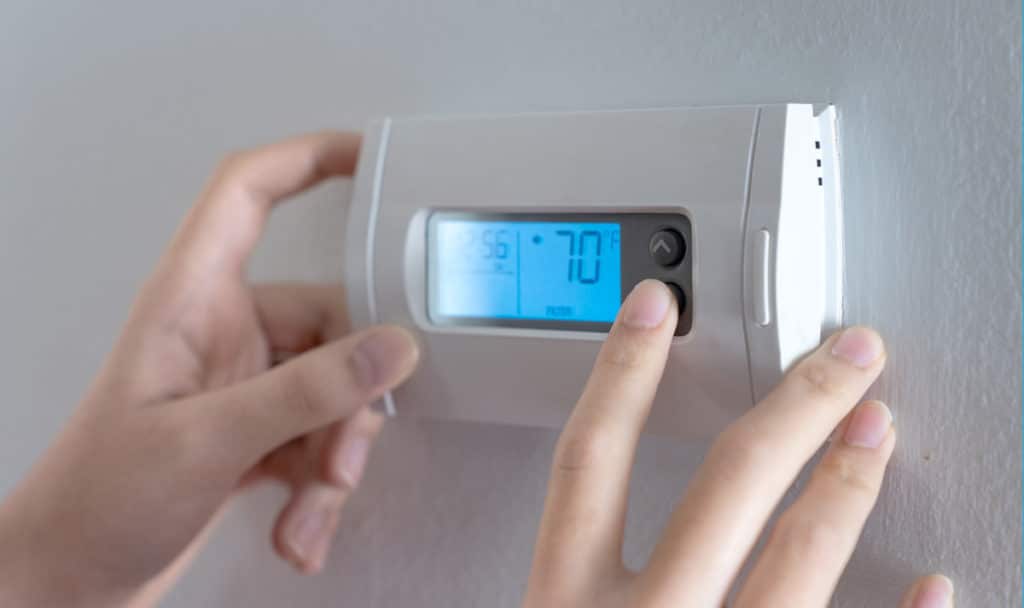There’s nothing like waking up and feeling rejuvenated after a good night’s sleep. A comfortable mattress, quality pillows, and soft bed sheets all help us get quality rest. But have you thought about the importance of the temperature in your bedroom?
If you struggle to sleep at night due to uncomfortable temperatures, it can affect your overall health and well-being. Read on to learn about optimal sleep temperatures and how your home’s HVAC system plays a role in keeping you comfortable at night.
How Temperature Affects Sleep
Quality sleep is essential for recharging your mind and body after each day. When you sleep, your core body temperature drops around two degrees to conserve energy and regulate brain activity. This process is called thermoregulation, and it’s essential for quality sleep. However, sleeping in a room that’s too hot or cold can disrupt your circadian rhythm. Adjusting your thermostat before you go to bed can help you get a better night’s rest.
Ideal Sleeping Temperatures
Studies from the National Sleep Foundation show that the ideal sleeping temperatures for most people range between 65 – 67 degrees Fahrenheit. Optimal sleep temperatures may vary depending on your age and where you live. However, keeping your thermostat within this range helps your body fall asleep faster and stay asleep throughout the night.
Your HVAC System & Sleep
Achieving comfortable sleep temperatures ultimately comes down to a well-maintained heating and cooling system. In addition to regulating temperature, your HVAC equipment also helps balance humidity and improve indoor air quality in your home.
A great way to make sure that your bedroom stays comfortable when you sleep is to invest in a programmable thermostat. This convenient technology automatically adjusts your thermostat at different points of the day, to save energy while maintaining comfort.
Certain thermostats also allow for wireless indoor sensors, which can balance the heating or cooling of your home relative to a specific space (like your bedroom). On top of that, zoning can help push air to specific areas that may need additional heating or cooling to maintain an optimal temperature. The best way to maximize airflow throughout your home is to seal your ducts with Aeroseal. If ductwork isn’t available, we recommend adding a ductless mini split or another solution to improve comfort in a precise manner.

Here are some other tips to improve your quality of sleep:
- Choose bedding materials that are breathable, like cotton or bamboo sheets and wool blankets.
- Control indoor moisture with a humidifier or dehumidifier, depending on the season.
- Use a fan to improve airflow in your bedroom.
- Experiment with different clothing options for sleeping to find what feels most comfortable.
Ready to sleep better at night? Start with an inspection of your home heating and cooling system by our team at Bears Home Solutions! We’ll make sure your system is running at maximum performance at all hours of the day. Contact us to schedule an appointment!



